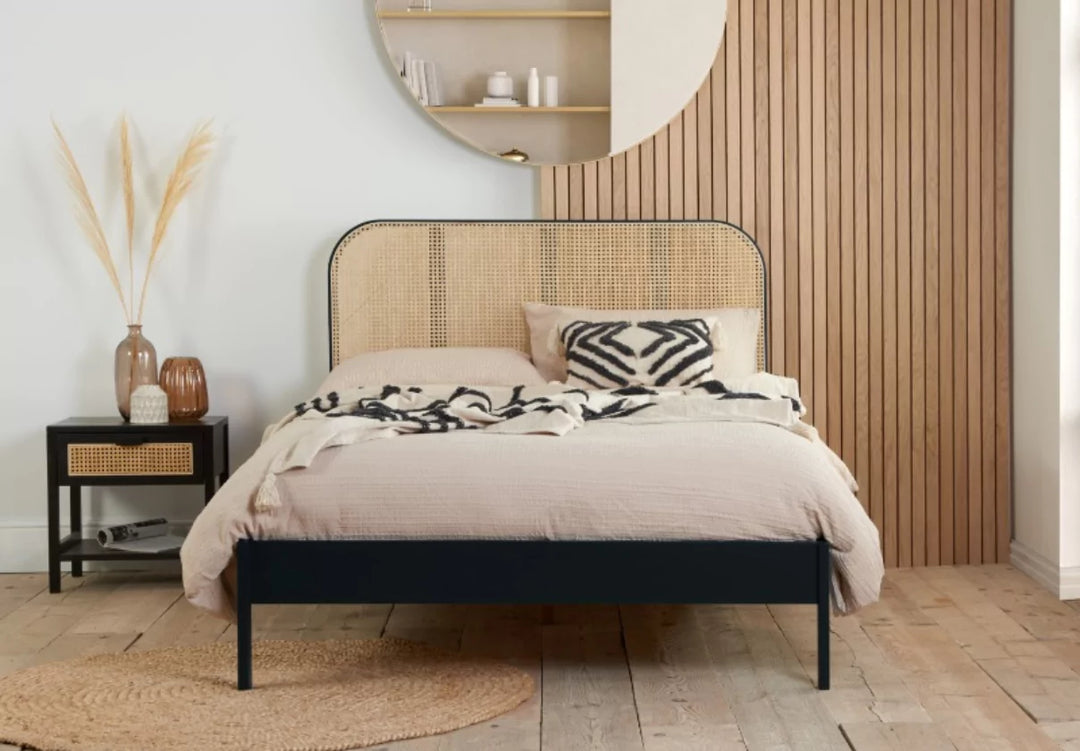30th September 2024
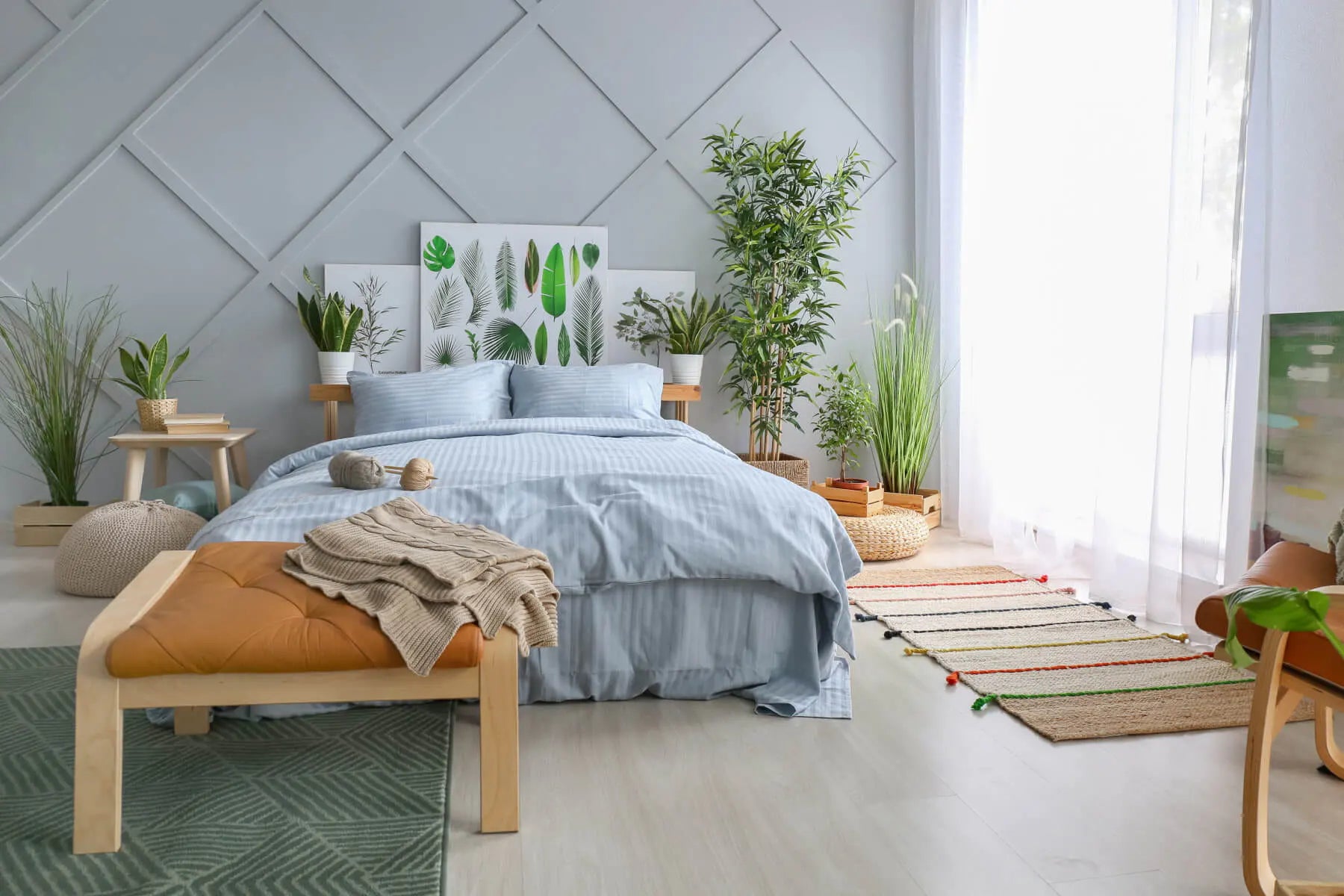
Struggling with poor sleep or a lacklustre bedroom atmosphere? Adding a touch of greenery could be the answer. Beyond their beauty, certain plants can help purify the air, reduce stress, and even improve sleep quality — making them a natural, stylish solution for modern bedrooms. In this blog, we will explore some of the benefits of having plants in your bedroom and provide some tips on which plants are best suited for this space.
Benefits of Plants in the Bedroom
Improved Air Quality: Plants are natural air purifiers, and they can help remove toxins and pollutants from the air. In a closed environment like a bedroom, this can be particularly important as the air can become stale and polluted.
Increased Oxygen: Plants release oxygen during the process of photosynthesis. This means that having plants in your bedroom can increase the level of oxygen in the room, which can help you sleep better.
Reduced Stress: Research has shown that being around plants can help reduce stress levels. Having plants in your bedroom can help create a peaceful and calming environment that can promote relaxation and restful sleep.
Natural Aromatherapy: Some plants have a pleasant aroma that can help promote relaxation and sleep. For example, lavender is known for its calming properties, and the scent of jasmine can help reduce anxiety.
Benefits: Known as one of the best air-purifying plants, the snake plant removes toxins such as formaldehyde, benzene, and trichloroethylene. It also produces oxygen at night, making it perfect for bedrooms.
Appearance: Tall, upright leaves with striking variegated patterns that add modern style to any room.
Care: Thrives in low light and requires minimal watering—only when the soil is completely dry. Very tolerant of neglect, ideal for beginners.
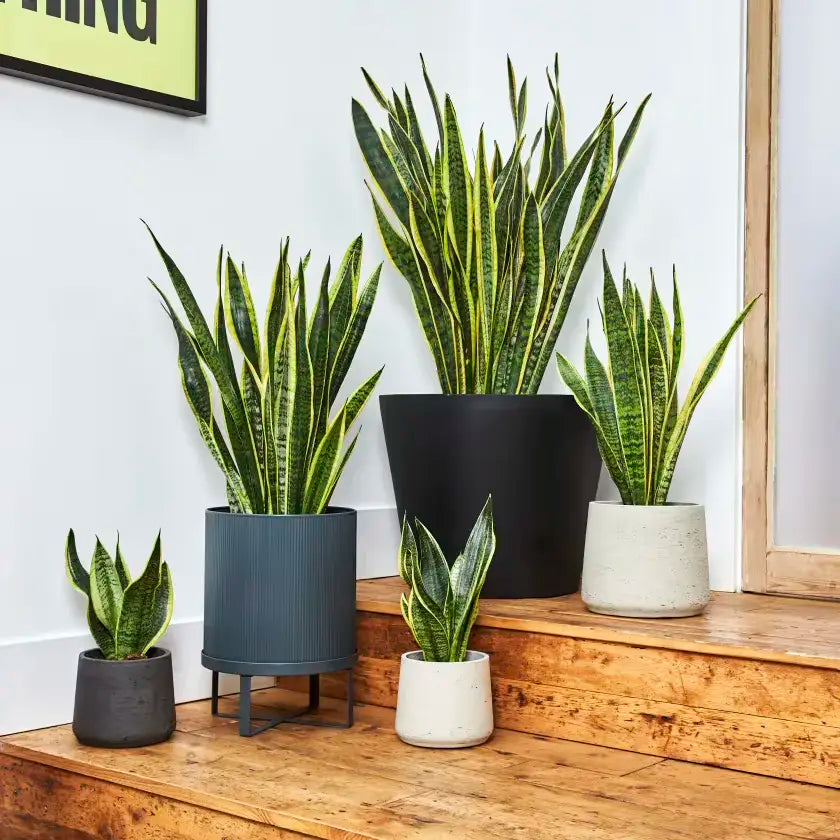
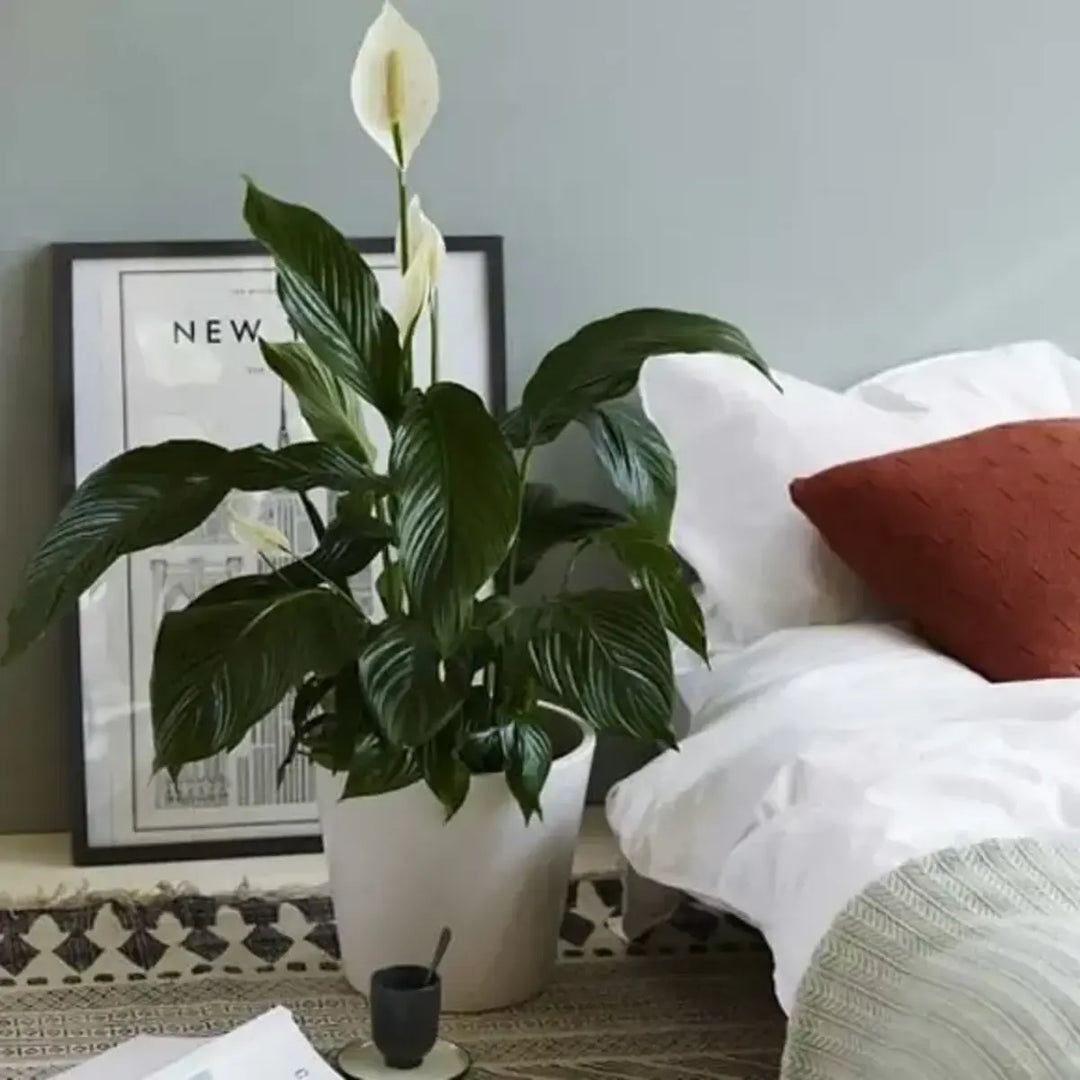
Benefits: Peace lilies improve indoor air quality by absorbing mold spores and harmful chemicals like ammonia and carbon monoxide. They also increase humidity, which can ease dry throats and sinuses during sleep.
Appearance: Glossy, dark green leaves with elegant white blooms that add a touch of sophistication.
Care: Prefers indirect light and consistently moist soil. It’s moderately easy to care for but avoid direct sunlight which can scorch its leaves.
Benefits: Beyond purifying air and releasing oxygen at night, aloe vera is well-known for its skin healing properties, helping soothe minor burns and irritations. It also helps reduce indoor pollutants such as formaldehyde and benzene.
Appearance: Thick, fleshy leaves with a serrated edge that give it a distinctive look.
Care: Needs bright, indirect light and infrequent watering—allow soil to dry completely between waterings.
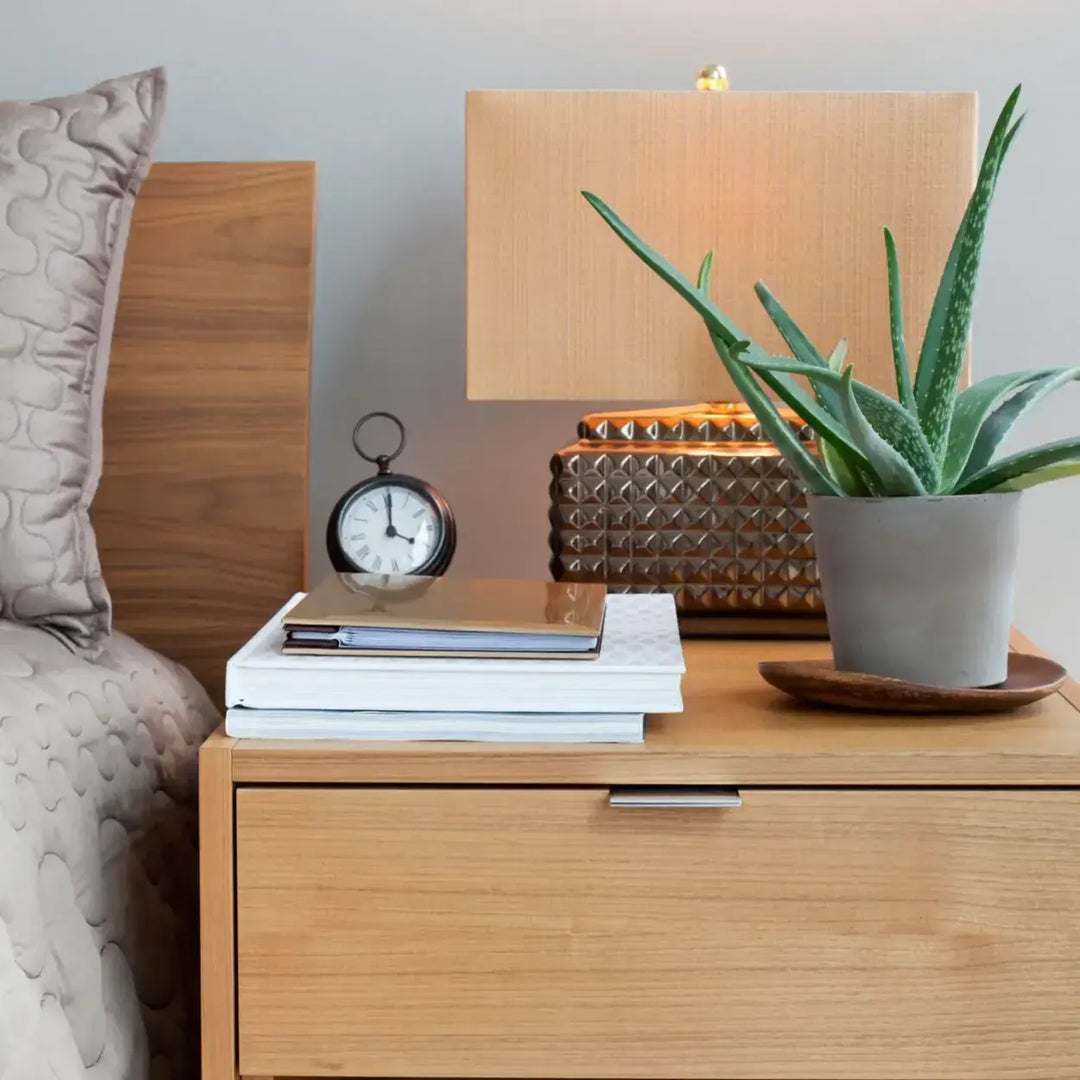
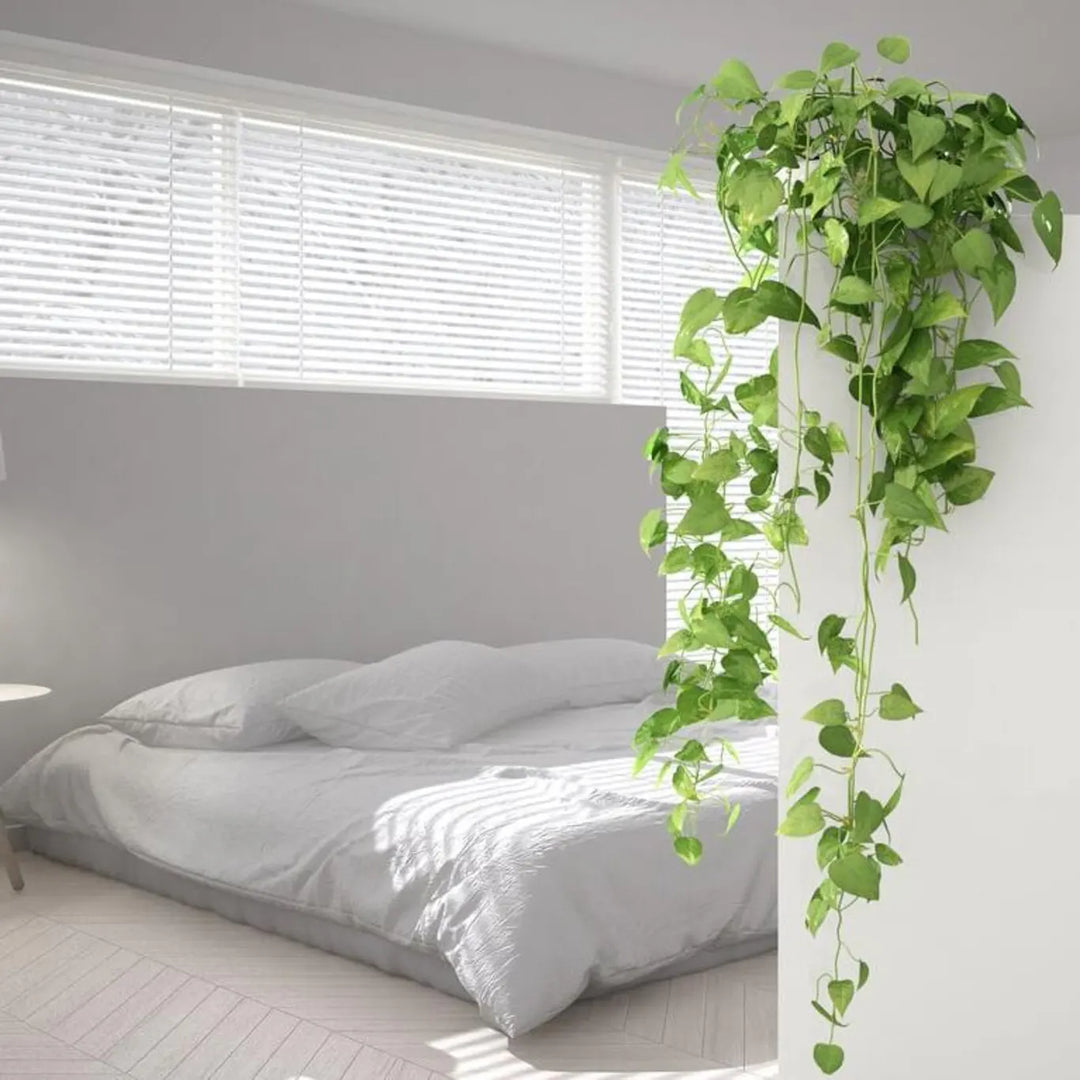
Benefits: English ivy is effective at reducing airborne mould and allergens, which can help reduce asthma symptoms and improve overall respiratory health, especially during sleep.
Appearance: Trailing vines with small, pointed green leaves, perfect for hanging baskets or shelves.
Care: Grows well in moderate light and prefers soil that is kept moist but well-drained. Can be invasive outdoors but contained well indoors.
Bedroom Plant Care Tips for Beginners
Light: Choose plants that tolerate low to moderate light since bedrooms often lack direct sunlight.
Pet Safety: Select non-toxic plants if you share your bedroom with pets to prevent accidental poisoning.
Watering: Water regularly but avoid overwatering, which can cause root rot. Check soil moisture before watering.
Protection: Place trays or saucers under pots to catch excess water and protect your furniture from damage.
Incorporating plants into your bedroom décor is a simple and effective way to improve your sleep environment naturally. From better air quality to stress relief and aromatherapy benefits, the right plants can transform your bedroom into a peaceful sanctuary. Start with easy-care options like snake plants or peace lilies and enjoy the refreshing, calming effects they bring to your personal space.




